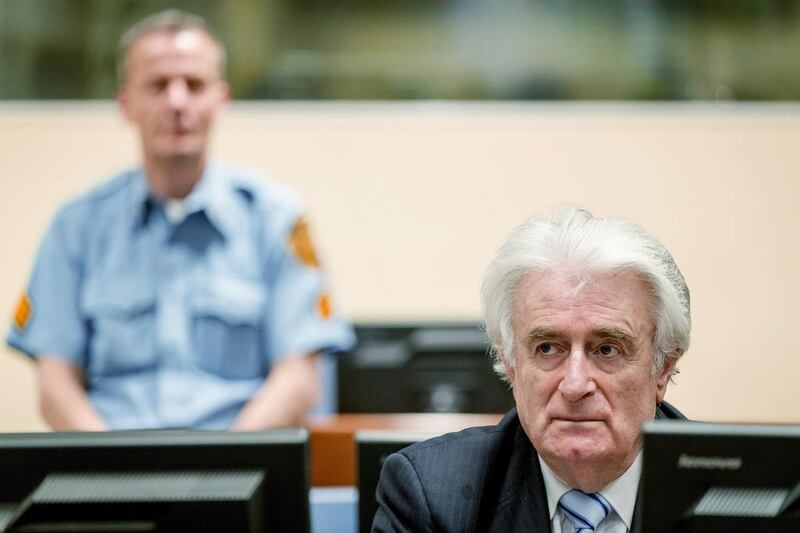I am a child of peace but I grew up in a country where peace is a time between two wars. I have never been more painfully aware of Bosnia’s grim history than in these past few months when Radovan Karadzic was finally sentenced for his war crimes.
After being indicted by the International Criminal Tribunal for the former Yugoslavia, Karadzic was a fugitive from 1996 until his arrest in 2008, working in alternative medicine under an assumed name.
He was a mythical character. I saw his face on every documentary video on the Bosnian war and yet, when he was arrested, I could not recognise him, hiding behind his beard and old age.
On March 24, he was found guilty of 10 out of the 11 charges of crimes against humanity and sentenced to 40 years in jail. He was found guilty of ethnically cleansing Bosnian and Croatian villages and for the genocide in Srebrenica. Forty years – that was all.
The two decades after the conflict have been characterised by a shameful refusal to face the truth.
I belong to the generation that did not see the blood-letting, but whose eyes are nonetheless stained red. But this is not something that comes up at the dinner table with your parents or during a coffee date with your friends. It is too hard to ask, too invasive, which only furthers the lack of constructive dialogue.
My generation went through school without a single lesson or textbook that spoke of the crimes committed in our schoolyards or in the woods surrounding our home towns. Denial has become the natural law of coexistence with our neighbours, which inhibits any hope of reconciliation.
My parents knew a united Yugoslavia, but I never will. Kids growing up today have no idea of the “other” – they are separated into ethnically cleansed areas. I grew up knowing which side is mine and who the “other one” is. You grow up knowing not to make certain hand gestures or say certain things. You grow up knowing that the worst crime a woman can commit is to marry one of “them”. You are never told the why’s and how’s and you rarely hear the “g word”. You learn that people recognise your country either by the assassination that started the horrors of the 20th century or the war that ended it.
Your history, and hence your story, is written for you, so the least you can do is explain why your country has three presidents, three entities, 10 districts within one of the entities, how the criminals hide behind beards and how you are more likely to run into them in the cheese aisle at the supermarket than to find them behind bars. Hatred runs through your veins without you asking for it.
I am a child of peace and the shadow of a war I never fought haunts me.
I cannot see “them” without wondering – did they watch, or did they participate? And I do not even know what my parents would say.
I am happy, blessed and without harm and yet I feel I have lost something as well. Why does my body feel invaded? Why does my childhood feel wiped out? The heavy burden of history makes it hard for me to imagine my future in Bosnia. I did not realise that burden before I left, but now it is inescapable. Every time I go back, I see the grenade marks on the buildings not as scars of the past, but as birthmarks of the new age, the age that I need to be part of as well.
Merima Sabanovic is a student at New York University Abu Dhabi





